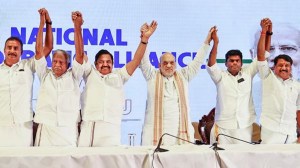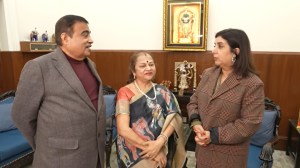Chidambaram does a balancing act in the Parliament
Home Minister P Chidambaram moved the NIA Bill and the Unlawfaul Activities Prevention Amendments Bills in the Parliament.

Home Minister P Chidambaram said in the Lok Sabha that government has sought to make a 8220;fair balance8221; of respect for fundamental rights and the demand of the people for tough provisions while bringing forward two legislations to fight terror effectively.
Moving the National Investigating Agency NIA Bill and the Unlawfaul Activities Prevention Amendments Bills for consideration in the House, he appealed to the members to pass the bills unanimously and promised to rectify defects in the legislation, if any, in the next session in February.
8220;We will do our best to satisfy your aspirations. Let us pass these two bills,8221; he said in a brief speech commending for consideration the two bills, which were introduced in the House on Tuesday.
Dealing with some of the provisions of the bill, he said notwithstanding the constitution of the NIA it would still respect the state government8217;s right to investigate cases and would even associate them in such investigation.
8220;We have struck a balance between right of the Central government and the state governments to decide on investigation,8221; the minister said.
In the UAPA bill, he said even while making tough provisions the Courts have been given the powers to decide on the prosecution8217;s case in the matter of bail and presumption of guilt on the accused in some specific cases.
In the NIA, the Minister said the agency to be set up by the Centre would respect the state government8217;s power to investigate terrorist cases.
When the state government sends the information to the Central government, the Centre within 15 days would decide, having regard to the gravity of the offence, whether it is fit to be taken up by the NIA.
8220;In many cases, I expect the NIA to ask the state governments to associate themselves,8221; he said adding the NIA would investigate offences under eight laws, including the Atomic Energy Act and The Anti-Hijacking Act. Judges to be appointed to the Special Courts under NIA would be done in consultation with the Chief Justice of High Courts and cases would be heard on day-to-day basis.
Appeals would lie with the division bench of the High Court and should be disposed off in three months under the NIA, he said.
Underlining differences between the provisions of the UAPA and those of the now scrapped-POTA, Chidambaram said enhanced duration of detention of an accused without bail was needed in terrorist cases as it may not be possible to completion investigation within 90 days.
Even the maximum period of detention was 8220;up to8221; 180 days and an accused could be released on bail earlier depending on the courts which have powers to decide.
He said for extending the detention period, the court has to be convinced that the investigation is making progress. 8220;It is an exceptional situation,8221; he added.
- 01
- 02
- 03
- 04
- 05































